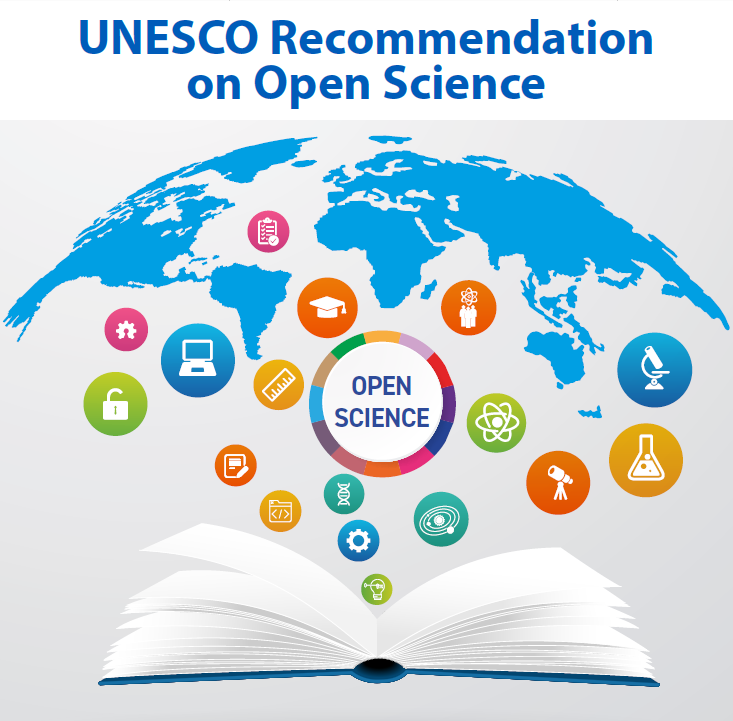
In November 2021, at the 41th session of the General Conference of UNESCO, 193 Member States unanimously adopted the first global standard-setting instrument on open science, the UNESCO Recommendation on Open Science.
Developed through a regionally balanced multistakeholder, inclusive and transparent consultation process, this landmark international agreement defines shared values and principles for open science, and identifies measures to make science more accessible, the scientific process more inclusive and the outputs of science more readily available and relevant for society.
The Recommendation affirms the importance of open science as a vital tool to improve the quality and accessibility of both scientific outputs and scientific process, to bridge the science, technology and innovation gaps between and within countries and to fulfill the human right of access to science.
The Implementation Strategy was shared with UNESCO Member States and the Open Science Partnership during an Online information meeting on Implementation of the UNESCO Recommendation on Open Science on 28 April 2022, which recording is available below.
As part of this Implementation Strategy, UNESCO is convening five ad-hoc Working Groups focusing on key impact areas related to open science, bringing together experts and open science entities, organisations and institutions, according to their field of activity and expertise. These are as follows:
- Open Science Capacity Building
- Open Science Policies and Policy Instruments
- Open Science Funding and Incentives
- Open Science Infrastructures
- Open Science Monitoring Framework
For more information:
Implementation of the UNESCO Recommendation on Open Science
UNESCO Recommendation on Open Science
Upcoming meetings of each Working Group
Global call for best practices in open science
MAY
2022
